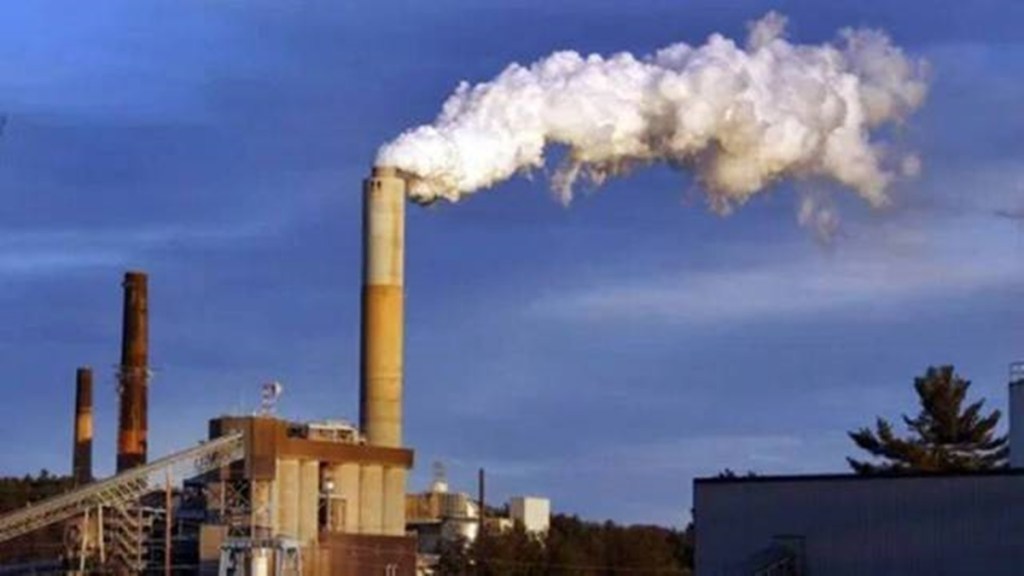By: Sachin Raole, Chief Financial Officer & Director, Praj Industries
The phenomenon of heat wave has been impacting countries across the world is the unfortunate precursor to the grave effects of global warming. Carbon emissions caused by the enormous use of fossil fuels is at the root of this impending peril.
Last year five regions in North Italy faced the worst ever famine in the last 70 years… 1600 fell prey within a week, to the impact of the heat wave in Germany… England recorded the highest temperature of 40 degree Celsius, a phenomenon that meteorologists forecast as occurring only once in a thousand years. This only proves how regions blessed with natural beauty and those that have strived to conserve their natural resources too, are still vulnerable to climate change.
It may be taken as a very real warning as to how humankind must tread very cautiously on the path of development if it must save its own existence.
This is not a bolt out of the blue. The world has been getting warnings over a period of time. Scientists, meteorologists and conservationists have been indicating what the future might hold if timely measures were not taken. Carbon emissions are still rising and the threat is in the face. Europe faces it in the form of aberrant climatic conditions. A country like India faces it in the form of economic setback. We are still grossly dependent on other nations for import of fuel. Scarcity and rising prices on the other hand affect the economy. And while all this is happening, the pollution caused by conventional fuels continues to harm the environment and human health. In short, if we are to continue on the path of development, it needs to happen with new age, congenial drivers, bio-fuel being the most important. However, camouflaged in this challenge is an opportunity for countries like India in the form of alternative fuel produced from bio-mass.
The United Nations steers conferences to address the issue of global climate change. India presented ‘Panchamrit’, a five-Point action plan that revolves around harnessing alternative fuel sources in the country up to 500 giga watts by 2030, fulfilling 50% of fuel requirement through sustainable resources, reducing carbon emissions by 1 bn tons by 2030, reducing the carbon intensity by 45% and achieving net zero target by 2070.
Bio-fuels can play a pivotal role in this mission. I say so with due confidence based on the indigenous technology that has already been developed so far. A high intensity area that impacts the situation is consumption of fuel in transportation, be it land, sea or air. It is imperative to adopt bio-fuel in all three modes of transportation. Today, on National Technology Day, we need to express our commitment to this mission and leverage technology to its best to accelerate our efforts.
Road transport is the most prevalent mode that impacts the lives of the common citizens. India’s Ethanol Blending Program is aimed at reducing the country’s dependence on crude oil imports, cutting carbon emissions, and boosting farmers’ income. The government has target of ethanol blending of 20% (EBP20) in petrol by year 2025-26. India has crossed its target of 10% ethanol blending target five months ahead of the plan and is on course to achieve 20% as planned.
Till 2018, supply of ethanol was mainly from distilleries attached to sugar factories. As the raw material for ethanol was only sugary feedstock, ethanol production in country was confined to few sugar rich states. To encourage ethanol production, National Biofuels policy was announced in 2018. The policy allowed use of starchy feedstock namely damaged grains as well excess grains. As starchy feedstock is available everywhere, ethanol production is now possible across the country.
It may be noted that the goal of 20% blend is not the end of the mission. Outlook for ethanol industry remains positive even beyond E20 target. There is clear recognition that biofuels have increasingly important role to play as they address multitude of issues across economic, social and environmental spectrum. Several policy measures under discussion that will ensure sustained demand for ethanol beyond EBP20. India can follow Brazil’s path where 27% ethanol blend mandatory. Most vehicles in Brazil run on E27, which is 27% ethanol blended gasoline, or E100 which as the name suggests is 100% ethanol! The average blend in Brazil has gone up to 47% and is already showing the benefits.
We will also see Flex fuel engines that can run on the ethanol blend varying from 20% up to 85%. Indian automotive manufacturers are gearing up to adapt their products for flex fuel option. Earliest this year, at India Auto Expo, number of automobile companies showcased vehicles that can run on ethanol blend up to 85%.
Indigenous technology is equally viable for application in the aviation industry. Production of jet fuel from alcohol is a potential solution. Sustinable Aviation fuel produced from biobased feedstock has been recognized and approved by the International Air transport Association
In terms of commercial viability, we have reached approximately the same state of development in bio-gas as we have in liquid bio-fuel. Bio-gas is expected to ably substitute Compressed Natural Gas (CNG). Compressed Bio-Gas (CBG) can be used successfully not only in transportation but also in industry and as cooking fuel.
Most importantly, all these alternate fuels shall use farm waste and decayed bio- mass as raw material. Farmers in several states in north India burn down acres and acres of agricultural stubble after the Kharif harvest, to prepare the land for the Rabi crop. This causes enormous air pollution. If the same waste is sent for bio-fuel production, we would have tackled the grave danger of widespread pollution and consequent health hazards. The farming community that was once the backbone of the Indian economy would once again become economically strong.
We owe them the opportunity to be not just the nation’s providers of food but also of energy. It would only bring health and prosperity to our future generations. It would create an additional income source for the farmers. As the supply chain for bio-mass consolidates, it would fortify the rural economy as a whole. That in turn would balance off the current lopsided urban development and bring about more equitable progress across the geography.
We would be able to curb the imports and successfully head towards self-sufficiency in energy. Obviously, we would become relatively immune to the rising international prices of conventional fuels. We would be able take stronger strides towards becoming a super power in the future.
Very often, the solutions to some of the most daunting challenges lie in our fold. As for bio-fuel, India, a country rich in raw material only needs to harness the treasure with the collective intelligence and talent of our scientific as well as entrepreneurial fraternity, duly supported by the policy makers. We are already on our way to realizing our ‘energy’ potential as a nation and to overcome the challenge of climate change. A crucial challenge has opened doors to glorious opportunities. It is time to make the most of the opportunities for the noble cause of nation building.
Disclaimer: Views expressed are personal and do not reflect the official position or policy of Financial Express Online. Reproducing this content without permission is prohibited.




















